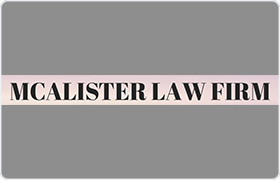Waveland White Collar Crime Lawyer, Mississippi
Sponsored Law Firm
-
 x
x

Click For More Info:
-
McAlister Law Firm, LLC
419 Security Square Gulfport, MS 39507» view mapCriminal Defense Law Your Gulf Coast Attorney
An Attorney with Nineteen years of court room experience. Licensed in the States of Mississippi and Alabama.
228-265-5190
Not enough matches for Waveland White Collar Crime lawyer.
Below are all Waveland Criminal lawyers.
Rob Curtis
✓ VERIFIEDCriminal, Divorce & Family Law, Accident & Injury, Estate, Bankruptcy & Debt
Rob Curtis is a practicing lawyer serving Gulfport, MS and the surrounding area.
Carolyn Ann McAlister
✓ VERIFIEDDivorce & Family Law, Criminal, Estate
Carolyn McAlister is a practicing attorney in the state of Mississippi. She received her J.D. from University of Mississippi. She has been practicing... (more)
W. Edward Hatten
Alcoholic Beverages, Dispute Resolution, Arbitration, Criminal
Status: In Good Standing
Christopher Brian Fisher
Landlord-Tenant, Immigration, Employment Discrimination, Criminal
Status: In Good Standing Licensed: 23 Years
James F Thompson
Criminal, Divorce & Family Law, Accident & Injury
Status: In Good Standing Licensed: 50 Years
James Luther Gray
Criminal, Divorce & Family Law, Estate, Divorce
Status: In Good Standing Licensed: 45 Years
 Carolyn McAlister Gulfport, MS
Carolyn McAlister Gulfport, MS


